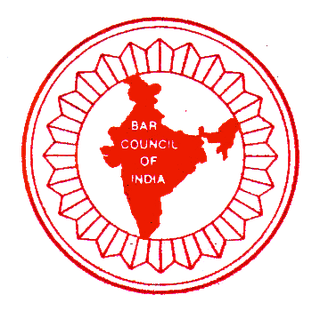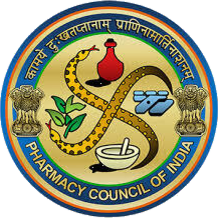The Royal College of Veterinary Surgeons (RCVS) is the regulatory body for veterinary surgeons in the United Kingdom, established in 1844 by royal charter. It is responsible for monitoring the educational, ethical and clinical standards of the veterinary profession. Anyone wishing to practice as a vet in the United Kingdom must be registered with the RCVS.

The Election Committee is the electoral college in Hong Kong that selects the Chief Executive (CE) and, since 2021, elects 40 of the 90 members of the Legislative Council. Established by Annex I of the Basic Law of Hong Kong which states that "the Chief Executive shall be elected by a broadly representative Election Committee in accordance with this Law and appointed by the Central People's Government ." It is formed and performs its selection function once every five years, even in the event of a CE not completing their term. The membership of the Election Committee was expanded to 1,500 under the massive overhaul of the electoral system in 2021. The Election Committee has been criticised for its "small-circle" electoral basis and its composition favouring pro-Beijing and business interests.
Governance of the University of St Andrews is laid down in a series of Acts of Parliament enacted between 1858 and 1966, and the Higher Education Governance (Scotland) Act 2016.

The Institute of Chartered Accountants of India, abbreviated as ICAI, is India's largest professional accounting body under the administrative control of Ministry of Corporate Affairs, Government of India. It was established on 1 July 1949 as a statutory body under the Chartered Accountants Act, 1949 enacted by the Parliament for promotion, development and regulation of the profession of Chartered Accountancy in India.

The Dental Council of India was incorporated under The Dentists Act, 1948 to regulate dental education and the profession throughout India. It is financed by the Ministry of Health and Family Welfare and through the local state dental councils.

Bar Council of India (BCI) is a statutory body established under section 4 of the Advocates Act 1961 that regulates the legal practice and legal education in India. Its members are elected from amongst the lawyers in India and represent the Indian bar. It prescribes standards of professional conduct, etiquettes and exercises disciplinary jurisdiction over the bar. It also sets standards for legal education and grants recognition to universities whose law degrees will qualify students to enrol themselves as advocates upon graduation.

The Architects Act 1997 is the consolidating Act of the Parliament of the United Kingdom for the keeping and publishing of the statutory Register of Architects by the Architects Registration Board. It has the long title: An Act to consolidate the enactments relating to architects. It consolidated two Acts of the 1930s as later amended both by primary legislation and by Orders in Council implementing the EC directive on architects providing for the recognition of architects qualified in other EC states, and the changes which had been made by Part III of the Housing Grants, Construction and Regeneration Act 1996.
An ex officio member is a member of a body who is part of it by virtue of holding another office. The term ex officio is Latin, meaning literally 'from the office', and the sense intended is 'by right of office'; its use dates back to the Roman Republic.
The Veterinary Council of India (VCI) is a statutory body which regulates veterinary practice in India. Established under the Ministry of Agriculture of the Government of India in 1984, and based in New Delhi, the council is governed by the Indian Veterinary Council Act, 1984. The first members were nominated in 1989. The first elections to the council took place in 1999. Since May 2019 after the creation of Ministry of Fisheries, Animal Husbandry and Dairying the Veterinary Council of India is functional as a statutory body under this ministry.

In India, the Urban Local Bodies (ULBs), also called municipalities, are self-government institutions responsible for the administration of cities, towns, and transitional areas within a state or Union Territory. The 74th amendment to the Constitution of India in 1992 provided constitutional framework for the establishment of Urban Local Bodies.
In the United Kingdom, the Architects Act 1997 imposes restrictions on the use of the name, style or title "architect" in connection with a business or a professional practice, and for that purpose requires a statutory Register of Architects to be maintained. The Architects Registration Board constituted under the Act is responsible for Architects Registration in the United Kingdom and is required to publish the current version of the Register annually. Every person who is entitled to be registered under the Act has the right to be entered in the register. The act consolidated previous enactments originating with the Architects (Registration) Act 1931 as amended by the Architects Registration Act 1938. It applies to England, Wales, Scotland and Northern Ireland.

The Pharmacy Council of India (PCI) is the statutory body under the Ministry of Health and Family Welfare, Government of India. It is constituted under the Pharmacy Act of 1948. The Council was first constituted on 4 March 1948. Montubhai Patel was elected as the new president of PCI in May 2022.

The 2021 Election Committee subsector elections were held on 19 September 2021 for elected seats of the 1,500 members of the Election Committee (EC) which is responsible for electing 40 of the 90 seats in the Legislative Council (LegCo) in the 2021 election and the Chief Executive of Hong Kong (CE) in the 2022 election.
Bar Council of Gujarat is the regulatory and statutorily representative body for lawyers practicing law in the state of Gujarat. It was constituted as per the mandatory requirement as per Advocates Act, 1961 and Bar Council of India. In March 1953, S. R. Das as head of the 'All India Bar Committee', proposed the creation of the apex body as an All-India Bar Council and Bar council at state levels and submitted a report to the Central Government of India. Members of the Bar Council are elected from among members enrolled and practicing as lawyers practicing law in the state of Gujarat and they represent the state in Bar Council of India meetings. Bar Council of a place designs standards of professional conduct to be followed by members, and designs etiquettes and has the power to enforce disciplinary guidelines over the members of bar council.
Bar Council of Maharashtra and Goa is the regulatory and statutorily representative body for lawyers practicing law in the states of Maharashtra and Goa, and the union territory of Dadra and Nagar Haveli and Daman and Diu. It was constituted as per the mandatory requirement as per Advocates Act, 1961 and Bar Council of India. In March 1953, S. R. Das as head of the 'All India Bar Committee', proposed the creation of the apex body as an All-India Bar Council and Bar council at state levels and submitted a report to the Central Government of India. Members of the Bar Council are elected from among members enrolled and practicing as lawyers practicing law in the states of Maharashtra and Goa, and the union territory of Dadra and Nagar Haveli and Daman and Diu, and they represent the state in Bar Council of India meetings. Bar Council of a place designs standards of professional conduct to be followed by members, and designs etiquettes and has the power to enforce disciplinary guidelines over the members of bar council.
Bar Council of Madhya Pradesh is the regulatory and statutorily representative body for lawyers practicing law in the state of Madhya Pradesh. It was constituted as per the mandatory requirement as per Advocates Act, 1961 and Bar Council of India. In March 1953, S. R. Das as head of the 'All India Bar Committee', proposed the creation of the apex body as an All-India Bar Council and Bar council at state levels and submitted a report to the Central Government of India. Members of the Bar Council are elected from among members enrolled and practicing as lawyers practicing law in the state of Madhya Pradesh and they represent the state in Bar Council of India meetings. Bar Council of a place designs standards of professional conduct to be followed by members, and designs etiquettes and has the power to enforce disciplinary guidelines over the members of bar council.
Bar Council of Orissa is the regulatory and statutorily representative body for lawyers practicing law in the state of Orissa. It was constituted as per the mandatory requirement as per Advocates Act, 1961 and Bar Council of India. In March 1953, S. R. Das as head of the 'All India Bar Committee', proposed the creation of the apex body as an All-India Bar Council and Bar council at state levels and submitted a report to the Central Government of India. Members of the Bar Council are elected from among members enrolled and practicing as lawyers practicing law in the state of Orissa and they represent the state in Bar Council of India meetings. Bar Council of a place designs standards of professional conduct to be followed by members, and designs etiquettes and has the power to enforce disciplinary guidelines over the members of bar council.
Bar Council of Uttar Pradesh is the regulatory and statutorily representative body for lawyers practicing law in the state of Uttar Pradesh. It was constituted as per the mandatory requirement as per Advocates Act, 1961 and Bar Council of India. In March 1953, S. R. Das as head of the 'All India Bar Committee', proposed the creation of the apex body as an All-India Bar Council and Bar council at state levels and submitted a report to the Central Government of India. Members of the Bar Council are elected from among members enrolled and practicing as lawyers practicing law in the state of Uttar Pradesh and they represent the state in Bar Council of India meetings. Bar Council of a place designs standards of professional conduct to be followed by members, and designs etiquettes and has the power to enforce disciplinary guidelines over the members of bar council.
Bar Council of West Bengal is the regulatory and statutorily representative body for lawyers practicing law in the state of West Bengal. It was constituted as per the mandatory requirement as per Advocates Act, 1961 and Bar Council of India. In March 1953, S. R. Das as head of the 'All India Bar Committee', proposed the creation of the apex body as an All-India Bar Council and Bar council at state levels and submitted a report to the Central Government of India. Members of the Bar Council are elected from among members enrolled and practicing as lawyers practicing law in the state of West Bengal and they represent the state in Bar Council of India meetings. Bar Council of a place designs standards of professional conduct to be followed by members, and designs etiquettes and has the power to enforce disciplinary guidelines over the members of bar council.
Bar Council of Uttarakhand is the regulatory and statutorily representative body for lawyers practicing law in the state of Uttarakhand. It was constituted as per the mandatory requirement as per Advocates Act, 1961 and Bar Council of India. In March 1953, S. R. Das as head of the 'All India Bar Committee', proposed the creation of the apex body as an All India Bar Council and Bar council at state levels and submitted a report to the Union Government of India. Members of the Bar Council are elected from among members enrolled and practicing as lawyers practicing law in the state of Uttarakhand and they represent the state in Bar Council of India meetings. Bar Council of a place designs standards of professional conduct to be followed by members, and designs etiquettes and has the power to enforce disciplinary guidelines over the members of bar council.








